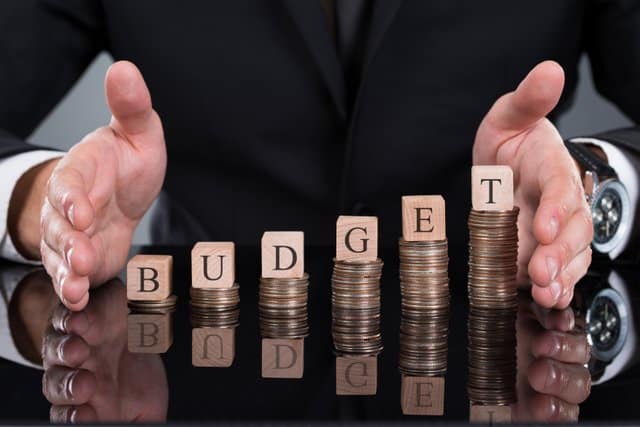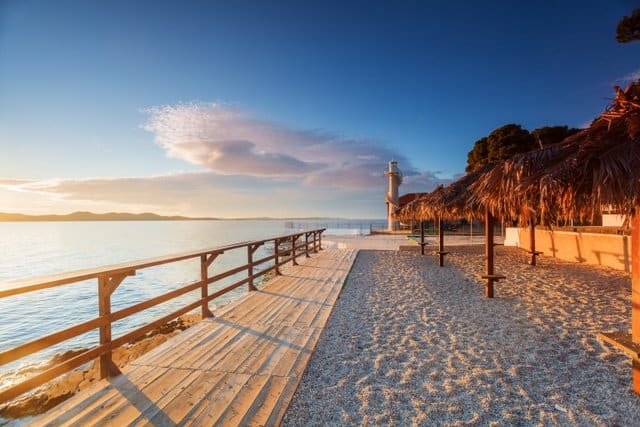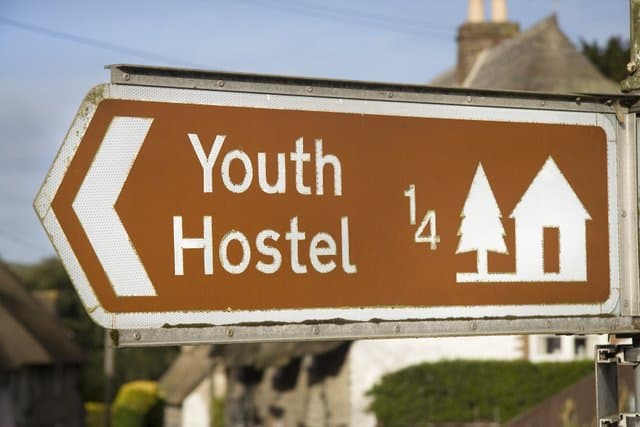
Almost everyone has a budget. Whether you’re trying to buy a house, save for retirement, or maintain your savings-to-spending ratio, a budget truly helps. In digital nomadism, it sometimes gets too easy for your life to disappear in a flurry of receipts. You need a flight, food, lodging, and you spend money on all this without tracking what’s left over.
So, how can you make a budget and stick with it? To make your own digital nomad budget, you should:
• Track your income, so you know what’s coming in and what’s going out
• Follow the 25 percent rule
• Remember to keep some money saved, such as for retirement
As for sticking to a budget, try:
• Applying for a travel credit card
• Coming up with cheaper travel and lodging plans (Airbnb over five-star hotel rooms sometimes)
• Lodging at extended stay hotels
• Always comparing rates before you hit the “book now” button
• Learning better self-control
Never tracked your income much before? Curious about how staying at a hotel longer can save you money? Don’t stress. In this article, we’ll expand on the above budgeting tips. We’ll also talk about the points we touched on for sticking with your budget. Let’s get saving!

How to Make Your Own Digital Nomad Budget
Track Your Income
Digital nomadism isn’t cheap, but you probably already knew that. Erin at the Never Ending Voyage, a digital nomad resource, says that over six years, she spent more than $37,000 on the lifestyle. Depending on how long you’ve been at it, perhaps you’ve shelled out even more money.
Or have you? It’s hard to say.
You can’t have a budget if you don’t know how much money you’re making. As a digital nomad with a startup business, we think it’s safe to say you probably see fluctuations in your income. Some months you do great and others, money is a little tighter.
For that reason, you’ll have to revise your budget regularly. For those months when you have extra income flowing in, you might plan that lavish trip you’ve had on your list for a while. On the months that aren’t as good, you wouldn’t want to through the money you do have. Instead, you’d hold onto it to get you through.
Remember the 25 Percent Rule
So you think you’ve got your budget all planned out. In the early part of the month, you do great at following it. You’re even pocketing some money because you’re spending more consciously. Then, in the middle of the month, you have an unexpected trip you need to take, it chews through your cash. You limp through to the next month only to have another surprise expense pop up.
That’s why you need the 25 percent rule in your life. With this, you should calculate that you’ll spend 25 percent more than whatever your current budget. It will prepare you for those sudden finance detours as well as currency exchange rate changes and the up-and-down costs of food and lodging. When these expenses inevitably arise, you can handle them without ending each month dangerously close to the red.

Save Some Money for Retirement and Other Things
Not everyone who toughs it out as a digital nomad will do it forever. You can probably say the same for yourself. After you settle back in your home country (or a new country you liked better), what’s left? You’ll still own your business, but now you have to start thinking about the serious life stuff, like retirement.
If you’re a startup owner or a freelancer, then you more than likely don’t have a regular retirement plan. There’s no company providing you with a 401(k); that’s coming out of your pocket if it’s coming out at all. Those who only squeak by month to month with a few extra bucks in hand will find it difficult if not impossible, to start a retirement fund or save money in any other meaningful way.
Traveling as a digital nomad is boatloads of fun, but when that fun stops, you want to make sure you have a future. First, we recommend you sit down and talk with a financial advisor about creating some retirement savings or starting another type of savings account. If you are trying to retire, then you might opt for a solo 401(k), a Roth IRA, or something else entirely.
No matter which savings option you choose, you’ll have to set aside yet more money still each month (or bi-monthly) towards it.

How to Stick to Your Budget
Apply for a Travel Credit Card
If always on-the-go and you don’t already have a travel credit card, you’re doing yourself a huge disservice. You should use your travel card whenever you book a flight and stay at a hotel. The more money you spend on the card, the more points you earn. You then get perks, discounts, and even freebies on your future adventures.
U.S. News & World Report made an excellent list on the top travel cards. We recommend you check it out as you consider which card would suit your finances and budget best.
You already know that flights and hotels eat through most of your budget money. If you can get something back for that money you spend, why wouldn’t you?
Cut Back Where You Can
The digital nomad lifestyle is in part about your image. You want to look like you’re living your best life to the point that sometimes you forget that you already are. Working remotely and using the money you make to travel is a luxury, not many people get to enjoy. It’s okay if sometimes you fly economy instead of first-class. You can rent out an Airbnb for a week over that expensive chain hotel. Eating a room service meal or something you cook for yourself rather than dining at a five-star restaurant isn’t the end of the world.
These might seem like small choices, but it’ll surprise you how much they add up over the weeks and months. If you make just one of the changes we suggested in the above paragraph, we’re almost sure you’ll have more money in your wallet by the close of the month.

Stay Longer
Throughout your travels, you’ll come across what’s known as extended stay hotels. These lodging options welcome visitors for weeks at a time. If you’ve slowed down your travel schedule for a budget or any other reason, then an extended stay hotel could be just what you’re looking for.
Often, by booking a more extended stay through one of these hotels, you’ll see more considerable savings. For instance, some extended stay hotels offer discounts to long-term travelers. Besides that, it tends to cost less money to stay at one hotel for three weeks than traveling to three cities and rooming at a different hotel in each city.
Staying longer also lets you get a better feel for the lay of the land. You’ll have time to scope out cheaper options and gravitate towards these during your visit.
Get Into the Habit of Comparing Rates
In the flurry of your unlimited travel plans and your never-ending workload, sometimes it feels like you don’t have two minutes to compare hotel and flight rates. You wish you could, but instead, you jump on whatever is available that fits your schedule.
By doing this, you’re hurting your wallet more than helping it. Sure, you booked that flight at lightning speed. What you don’t know is that if you took the time to compare rates for other flights for 10 or 15 minutes, you could have gone with a different airline and shaved some significant costs.
Although it’s hard, don’t always rush to book whatever seems most convenient. There are many travel and lodging apps out there you can use to compare prices. Then, when you find the one that’ll save you the most money, you can jump on it at lightning speed.
Here’s a list of apps to get you started courtesy of Digital Trends.

Maintain a Degree of Self-Control
Getting back to digital nomadism and the image you wish to portray, you can sometimes go overboard on buying unnecessary items. From clothes to jewelry, watches, shoes, and pointless souvenirs, you must maintain some self-control on your travels. That doesn’t mean you shouldn’t ever treat yourself, especially if you’ve done well with the business lately. However, before you drop several hundred dollars at a clip, check that you won’t drive your finances down if you make such a purchase (or a series of purchases).
Also, forget about the image. You’re already living a fabulous life, albeit one that requires countless hours of hard work and dedication. You can travel freely, and you’re never stuck in an office unless you want to be. There’s no need to spend money to show you’re doing better than some people. Live your life for you, and you’ll be far happier.
Conclusion
As a digital nomad, you spend some of the money you make on travel. The keyword there is “some.” Without a budget, it’s hard to know when money goes out and what you’re using it on. Once you sit down and calculate your expenditures, you might realize you’re wasting money on too-expensive hotels and pricy meals.
Besides having a budget, to survive in this world, you also need solid money management skills. Going cheaper with your flights or lodging can put more money in your pocket. Resisting the urge to spend needlessly on an image will also benefit you greatly. We hope the tips and tricks in this article help you get on the right track financially as a digital nomad. Good luck!
I’m the owner of Digital Nomad Explorer. I’ve traveled to over 50 countries and been an expat in Scotland, Finland, and China. I was a digital nomad while having my own robotics company and traveled throughout Europe and China working remotely. Currently, I’m location independent with a home base in Kirkkonummi, Finland.

